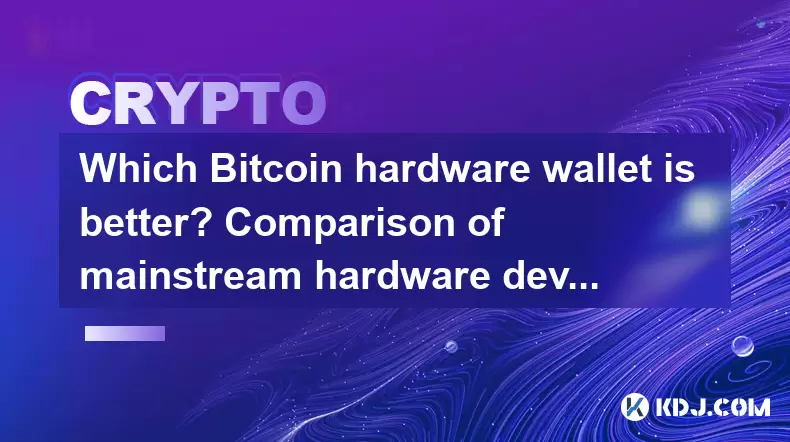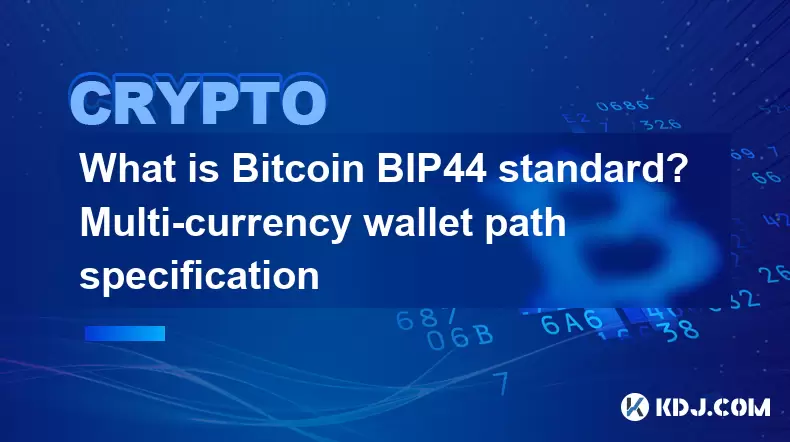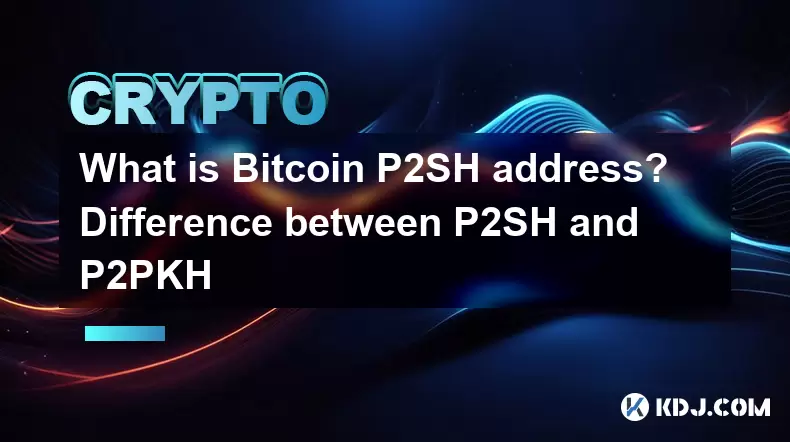-
 Bitcoin
Bitcoin $106,731.2224
-1.05% -
 Ethereum
Ethereum $2,444.9804
-1.20% -
 Tether USDt
Tether USDt $1.0003
0.01% -
 XRP
XRP $2.1882
0.09% -
 BNB
BNB $651.1435
-0.61% -
 Solana
Solana $148.3252
-2.09% -
 USDC
USDC $1.0000
0.01% -
 TRON
TRON $0.2787
0.55% -
 Dogecoin
Dogecoin $0.1598
-3.16% -
 Cardano
Cardano $0.5520
-2.43% -
 Hyperliquid
Hyperliquid $39.0960
-2.64% -
 Bitcoin Cash
Bitcoin Cash $516.9519
2.98% -
 Sui
Sui $2.7011
-2.95% -
 Chainlink
Chainlink $13.0582
-1.71% -
 UNUS SED LEO
UNUS SED LEO $8.9250
-2.53% -
 Stellar
Stellar $0.2359
-0.18% -
 Avalanche
Avalanche $17.3856
-3.73% -
 Toncoin
Toncoin $2.8095
-3.56% -
 Shiba Inu
Shiba Inu $0.0...01121
-1.95% -
 Litecoin
Litecoin $85.2795
-0.85% -
 Hedera
Hedera $0.1471
-2.15% -
 Monero
Monero $319.8004
1.12% -
 Dai
Dai $1.0001
0.01% -
 Ethena USDe
Ethena USDe $1.0001
0.02% -
 Bitget Token
Bitget Token $4.5344
-1.07% -
 Polkadot
Polkadot $3.3224
-2.96% -
 Uniswap
Uniswap $6.9697
-2.75% -
 Aave
Aave $266.1658
-2.25% -
 Pepe
Pepe $0.0...09414
-3.41% -
 Pi
Pi $0.4913
-3.29%
How to seize the opportunity to buy at a low price when the price of Bitcoin fluctuates?
Bitcoin's volatility offers low-price buying opportunities. Employ technical analysis, dollar-cost averaging, and monitor market sentiment for informed decisions. Patience and discipline are key to navigating price fluctuations successfully.
Mar 14, 2025 at 07:11 pm

Key Points:
- Understanding Bitcoin's volatility is crucial for successful low-price buying.
- Utilizing technical analysis tools can help identify potential buying opportunities.
- Dollar-cost averaging (DCA) mitigates risk and allows for gradual accumulation.
- Monitoring market sentiment and news can provide valuable insights.
- Patience and discipline are essential for navigating price fluctuations.
How to Seize the Opportunity to Buy at a Low Price When the Price of Bitcoin Fluctuates?
Bitcoin's price is notoriously volatile. This volatility, while risky, presents opportunities for savvy investors to acquire Bitcoin at a lower price. Successfully navigating these fluctuations requires understanding market dynamics and employing strategic approaches. Ignoring fundamental analysis in favor of chasing short-term price movements is often a recipe for losses.
One of the most effective methods is to employ technical analysis. This involves studying charts to identify patterns and indicators that suggest potential price reversals or dips. Tools like moving averages, Relative Strength Index (RSI), and support/resistance levels can help pinpoint opportune moments to buy. However, remember that technical analysis is not a perfect predictor; it's a tool to aid decision-making, not dictate it.
Another crucial aspect is understanding market sentiment. Negative news or regulatory uncertainty can trigger price drops. By monitoring news sources and social media sentiment, you can gauge the overall market mood. A significant negative sentiment, while potentially frightening, could present a buying opportunity if you believe the negative news is overblown or already priced into the market.
Dollar-cost averaging (DCA) is a popular strategy that involves investing a fixed amount of money at regular intervals, regardless of the price. This mitigates the risk of investing a lump sum at a high price point. DCA allows you to accumulate Bitcoin gradually, averaging out the cost over time. This strategy reduces the emotional impact of price swings and prevents impulsive decisions driven by fear or greed.
Patience and discipline are paramount. The crypto market is characterized by frequent price swings. Avoid impulsive decisions driven by fear of missing out (FOMO) or panic selling. Sticking to your investment plan and maintaining a long-term perspective is key to weathering the storms and capitalizing on opportunities. Remember, Bitcoin's price has historically recovered from significant dips, offering a testament to its resilience.
Understanding different order types is also vital. Limit orders allow you to buy Bitcoin only at a specific price or lower, ensuring you don't overpay. Stop-loss orders can help protect your investment by automatically selling your Bitcoin if the price falls below a predetermined level. Mastering these order types is essential for executing your trading strategy effectively and mitigating potential losses.
Diversification within your cryptocurrency portfolio can also be a beneficial strategy. While focusing on Bitcoin, allocating a portion of your investment to other cryptocurrencies can help reduce overall portfolio volatility. However, always conduct thorough research before investing in any cryptocurrency. Remember that diversification doesn't eliminate risk; it manages it.
Utilizing Fundamental Analysis:
While technical analysis focuses on price charts, fundamental analysis delves into the underlying factors influencing Bitcoin's value. This includes assessing adoption rates, technological advancements, regulatory developments, and overall market sentiment. A strong fundamental outlook can bolster your confidence in buying even during periods of price volatility. A deep understanding of both technical and fundamental aspects will give you a more complete picture of the market.
Risk Management:
Never invest more than you can afford to lose. The cryptocurrency market is inherently risky, and Bitcoin’s price can fluctuate dramatically in short periods. Before making any investment decisions, carefully assess your risk tolerance and ensure you are comfortable with the potential for losses. Having a well-defined risk management strategy is crucial for long-term success.
Staying Informed:
Staying informed about market trends, news, and regulatory updates is crucial. Reputable news sources and analytical platforms can provide valuable insights. However, be wary of misleading information and scams, always verifying information from multiple reliable sources.
Common Questions:
Q: Is it possible to accurately predict Bitcoin's price movements?
A: No, accurately predicting Bitcoin's price movements is impossible. While technical and fundamental analysis can provide insights, they are not guarantees of future price action. The market is influenced by numerous unpredictable factors.
Q: How can I avoid emotional decision-making during price fluctuations?
A: Develop a well-defined investment strategy before entering the market. Stick to your plan, regardless of short-term price movements. Consider using DCA to reduce the impact of emotional decisions. Regularly review your strategy and adjust it as needed.
Q: What are the risks associated with buying Bitcoin at a low price?
A: The price could continue to decline, resulting in losses. The market is volatile and unpredictable. There's also the risk of scams and security breaches related to cryptocurrency exchanges and wallets.
Q: What is the best time to buy Bitcoin?
A: There's no single "best" time. Successful buying depends on your risk tolerance, investment strategy, and market analysis. Utilizing strategies like DCA can help mitigate the risk of buying at a peak.
Q: Should I invest my entire savings in Bitcoin?
A: No. Diversification is key to managing risk. Never invest more than you can afford to lose. Consider spreading your investment across different asset classes.
Disclaimer:info@kdj.com
The information provided is not trading advice. kdj.com does not assume any responsibility for any investments made based on the information provided in this article. Cryptocurrencies are highly volatile and it is highly recommended that you invest with caution after thorough research!
If you believe that the content used on this website infringes your copyright, please contact us immediately (info@kdj.com) and we will delete it promptly.
- Powell, Stablecoin Regulation, and Circle's Bold Move: A New York Minute on Crypto's Future
- 2025-07-02 02:30:12
- Ethereum Price, Tom Lee, and Bitcoin: A New Era for Crypto?
- 2025-07-02 02:30:12
- Hoskinson, Ripple, Cardano DeFi: A New Era of Collaboration?
- 2025-07-02 02:35:12
- BlockDAG, ALGO, and the Crypto Trends Shaping 2025
- 2025-07-02 01:50:12
- Cold Wallet, Token, Gains: Is CWT the Smartest Crypto Move?
- 2025-07-02 01:10:12
- Pi Coin's Rocky Ride: Support Levels, Recovery Timeline, and What the Experts Are Saying
- 2025-07-02 01:10:12
Related knowledge

Which Bitcoin hardware wallet is better? Comparison of mainstream hardware devices
Jun 16,2025 at 02:08am
What Is a Bitcoin Hardware Wallet?A Bitcoin hardware wallet is a physical device designed to securely store the private keys associated with your cryptocurrency holdings. Unlike software wallets, which are more vulnerable to online threats, hardware wallets keep private keys offline, significantly reducing the risk of unauthorized access. These devices ...

What are Bitcoin non-custodial wallets? Self-controlled private key recommendation
Jun 16,2025 at 11:29pm
Understanding Bitcoin Non-Custodial WalletsA Bitcoin non-custodial wallet is a type of digital wallet where users retain full control over their private keys. Unlike custodial wallets, which are managed by third-party services such as exchanges, non-custodial wallets ensure that only the user can access and manage their funds. This means no intermediary...

What is Bitcoin BIP44 standard? Multi-currency wallet path specification
Jun 15,2025 at 04:08pm
Understanding the BIP44 Standard in Bitcoin and CryptocurrencyThe BIP44 standard, which stands for Bitcoin Improvement Proposal 44, is a widely adopted hierarchical deterministic wallet structure used across various cryptocurrencies. It defines a structured path format that enables wallets to support multiple currencies while maintaining consistency and...

What is Bitcoin HD wallet? Advantages of layered deterministic wallets
Jun 16,2025 at 03:56pm
Understanding Bitcoin HD WalletsA Bitcoin HD wallet, or Hierarchical Deterministic wallet, is a type of cryptocurrency wallet that generates multiple keys and addresses from a single seed phrase. Unlike traditional wallets that create random private keys for each transaction, an HD wallet follows a structured hierarchy to derive keys in a deterministic ...

Is Bitcoin zero-confirmation transaction risky? Zero-confirmation usage scenarios
Jun 15,2025 at 03:57am
Understanding Zero-Confirmation Transactions in BitcoinBitcoin zero-confirmation transactions, often referred to as 'unconfirmed transactions,' are those that have been broadcast to the network but have not yet been included in a block. This means they have not received any confirmations from miners. While these transactions can be useful in certain con...

What is Bitcoin P2SH address? Difference between P2SH and P2PKH
Jun 16,2025 at 09:49pm
Understanding Bitcoin P2SH AddressesA Pay-to-Script-Hash (P2SH) address in the Bitcoin network is a type of address that allows users to send funds to a script hash rather than directly to a public key hash, as seen in earlier address formats. This innovation was introduced through BIP 16, enhancing flexibility and enabling more complex transaction type...

Which Bitcoin hardware wallet is better? Comparison of mainstream hardware devices
Jun 16,2025 at 02:08am
What Is a Bitcoin Hardware Wallet?A Bitcoin hardware wallet is a physical device designed to securely store the private keys associated with your cryptocurrency holdings. Unlike software wallets, which are more vulnerable to online threats, hardware wallets keep private keys offline, significantly reducing the risk of unauthorized access. These devices ...

What are Bitcoin non-custodial wallets? Self-controlled private key recommendation
Jun 16,2025 at 11:29pm
Understanding Bitcoin Non-Custodial WalletsA Bitcoin non-custodial wallet is a type of digital wallet where users retain full control over their private keys. Unlike custodial wallets, which are managed by third-party services such as exchanges, non-custodial wallets ensure that only the user can access and manage their funds. This means no intermediary...

What is Bitcoin BIP44 standard? Multi-currency wallet path specification
Jun 15,2025 at 04:08pm
Understanding the BIP44 Standard in Bitcoin and CryptocurrencyThe BIP44 standard, which stands for Bitcoin Improvement Proposal 44, is a widely adopted hierarchical deterministic wallet structure used across various cryptocurrencies. It defines a structured path format that enables wallets to support multiple currencies while maintaining consistency and...

What is Bitcoin HD wallet? Advantages of layered deterministic wallets
Jun 16,2025 at 03:56pm
Understanding Bitcoin HD WalletsA Bitcoin HD wallet, or Hierarchical Deterministic wallet, is a type of cryptocurrency wallet that generates multiple keys and addresses from a single seed phrase. Unlike traditional wallets that create random private keys for each transaction, an HD wallet follows a structured hierarchy to derive keys in a deterministic ...

Is Bitcoin zero-confirmation transaction risky? Zero-confirmation usage scenarios
Jun 15,2025 at 03:57am
Understanding Zero-Confirmation Transactions in BitcoinBitcoin zero-confirmation transactions, often referred to as 'unconfirmed transactions,' are those that have been broadcast to the network but have not yet been included in a block. This means they have not received any confirmations from miners. While these transactions can be useful in certain con...

What is Bitcoin P2SH address? Difference between P2SH and P2PKH
Jun 16,2025 at 09:49pm
Understanding Bitcoin P2SH AddressesA Pay-to-Script-Hash (P2SH) address in the Bitcoin network is a type of address that allows users to send funds to a script hash rather than directly to a public key hash, as seen in earlier address formats. This innovation was introduced through BIP 16, enhancing flexibility and enabling more complex transaction type...
See all articles

























































































